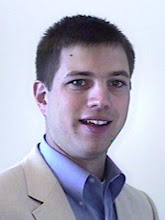Let's focus in on just 2 key messages from the interview-
The Desktop OS today is not designed for the Internet
Ozzie points out that today we're using a desktop OS which was primarily oriented for running local applications. The browser is basically the local application in which nearly all Internet content is rendered. New software development never focuses on building local desktop applications and then giving them extensions for the web - it's web applications built with a web-services interface which traditional applications further down the line may take advantage of.
What wasn't said...
- The issue is not limited to Windows/Linux/OSX - I'm sorry, they all fail to shift to an Internet-based paradigm. The fundamental issue is that we do not yet have a true "Internet - desktop operating system". (oh, and I'm pretty sure Cisco holds trademark on IOS, sorry Apple ;-) The characteristics of an operating system designed for the Internet would be more like a cable set-top box, IP Phone, Cable Modem or any other relatively stateless device which can be centrally managed, updated, upgraded and provisioned.
Cloud computing isn't ready [yet]
In the interview, Ozzie talks about the downtime of services like Hotmail being demonstrable proof of service-computing immaturity- presumably Blackberry was in his mind as well. They also did a very nice job of articulating the difference between Enterprise (monolithic, although he liked the term 'coupled') and Service Provider markets. Too often I will hear a vendor say that they are going to lead in the Enterprise and then take to the SP market -- sorry folks, the SP is more than a big enterprise, it's a different business mode demanding a very different technology architecture.
What wasn't said...
- My colleague Bryan and I have heard the reliability argument several times recently. I'm a huge fan and subscriber to JungleDisk which leverages back-end storage provided by Amazon S3. If you want to talk about reliability and lack of uptime guarantees, lets talk about laptop hard drives and USB keyfobs. If you demand greater uptime guarantees in your personal computing or enterprise computing applications, there's this little concept called "redundancy". Both my home desktop and work computers have RAID-5 and RAID-10 configurations. What if I subscribe to JungleDisk/S3 -- and user storage services from Google/Yahoo & yes - even my trusty 16GB USB key-fob for redundancy and backup? If your device is nothing but an off-line cache of your on-line environment - where's the issue Ray ?
Ozzie said several things that I agree with. I agree that we're on antiquated operating systems. I had really hoped that he'd give us a glimpse into what he sees as the future. I know of one concept which is very close the where I expect things to head. I agree that cloud compute services are priced TODAY at levels which customers are ready to subscribe and at which profitable businesses will be born.
He also said a few things which I viewed as intentionally vague or misleading. In what I view as an attempt to not fan the OS-religion flames, he omitted that the Internet-DISablement of the desktop OS is common across all forms (Win/Lnx/OSX). He introduced FUD around cloud-compute reliability, perhaps because Microsoft is noticeably absent in this market today. Lastly he questioned the near-term viability of mesh-applications - something whereby which very mature technology like BitTorrent for mesh CDNs already leverage a 'mesh' and it won't be long before IBM's Blue Cloud gets meshed-up with Amazon's elastic compute services.
There you have it - more words than the original article, but hopefully a perspective which brings context to the randomness and rationale behind the obscure.
Best Regards,
Dave

No comments:
Post a Comment